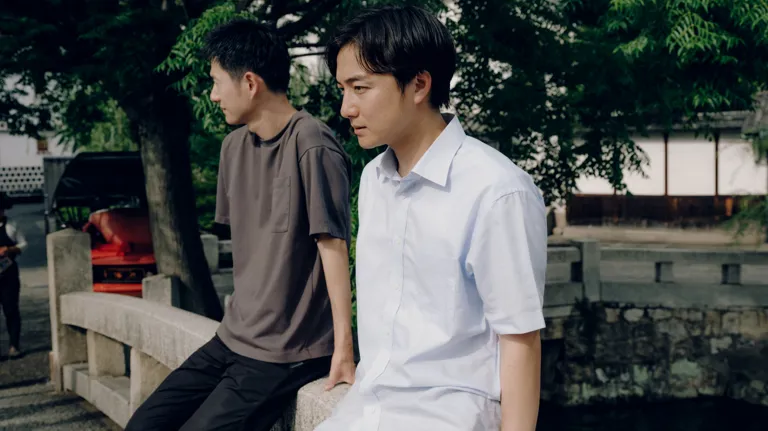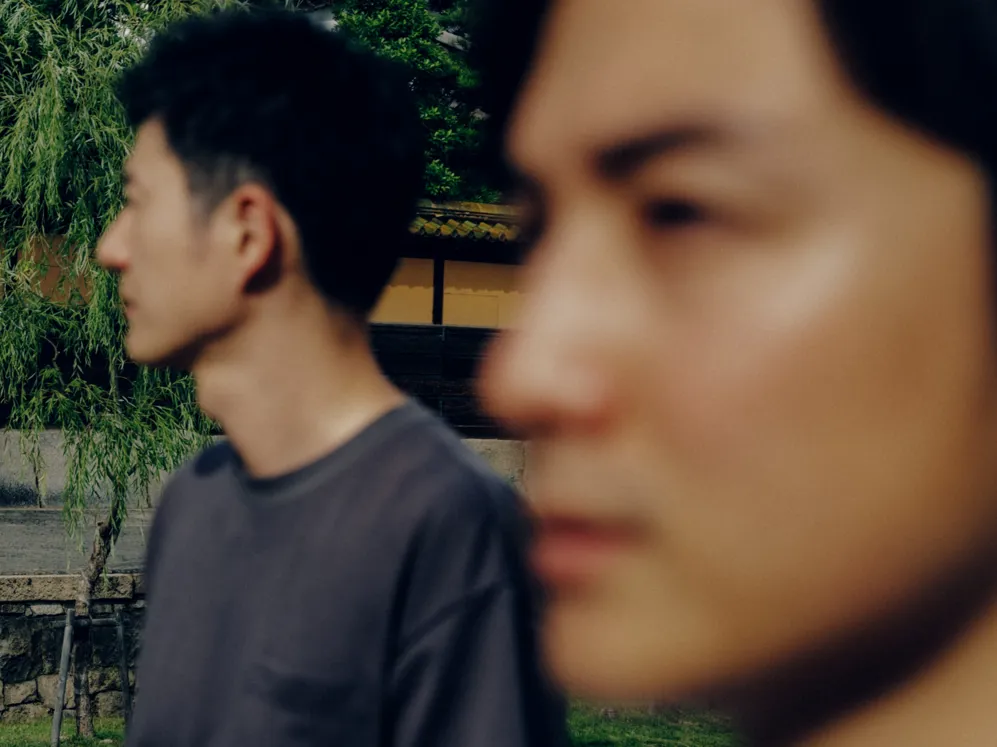
Words Allison Reiber DiLiegroImages Ian Lanterman
Yuya, a lover of travel with a consulting background, was struck by Yuta’s quietly radical approach to hospitality: building not for scale, but for soul. Yuta—co-founder of Naru Developments—believes in crafting singular, deeply rooted hotels that grow organically from the places they inhabit. And that philosophy resonated deeply with them both.
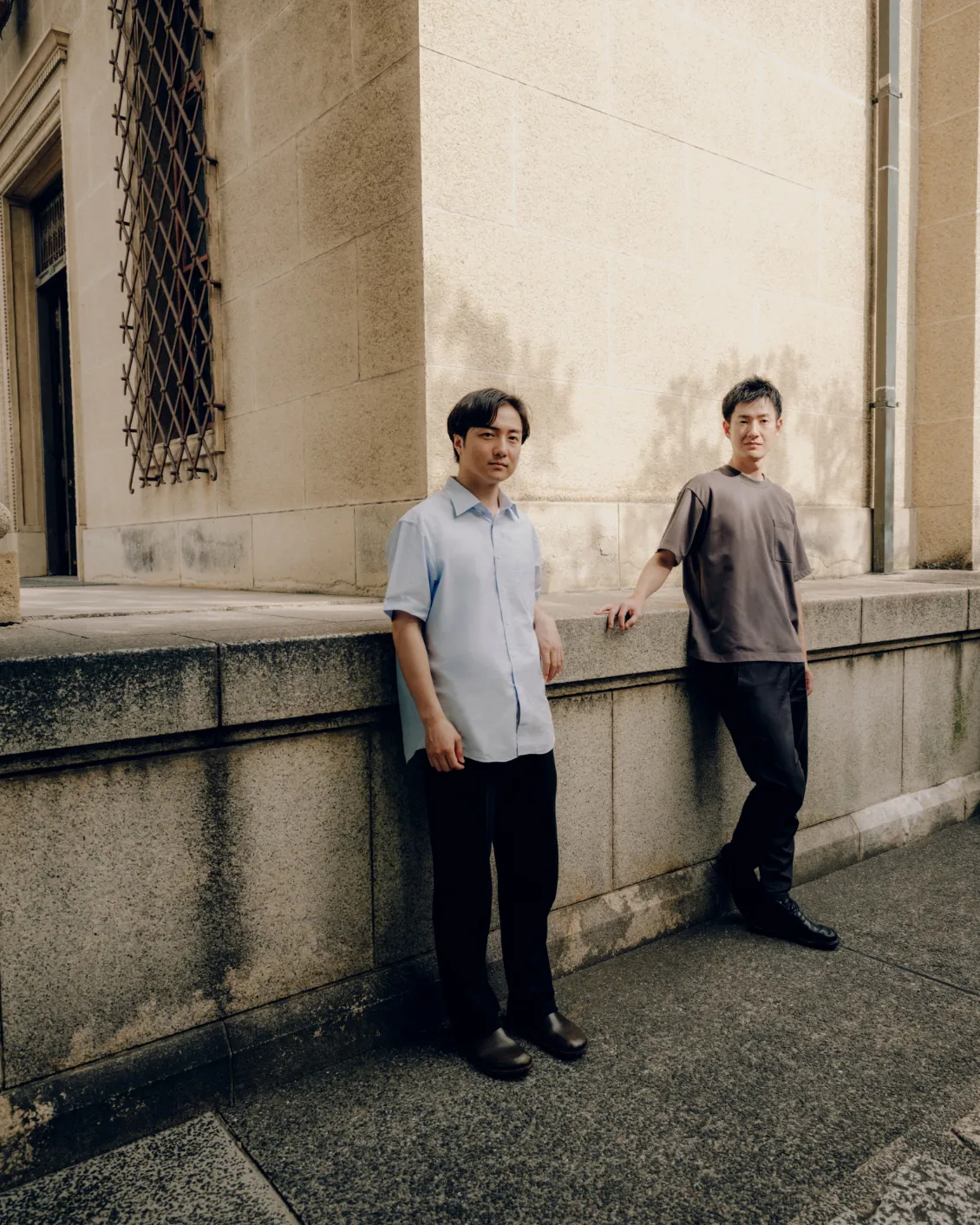
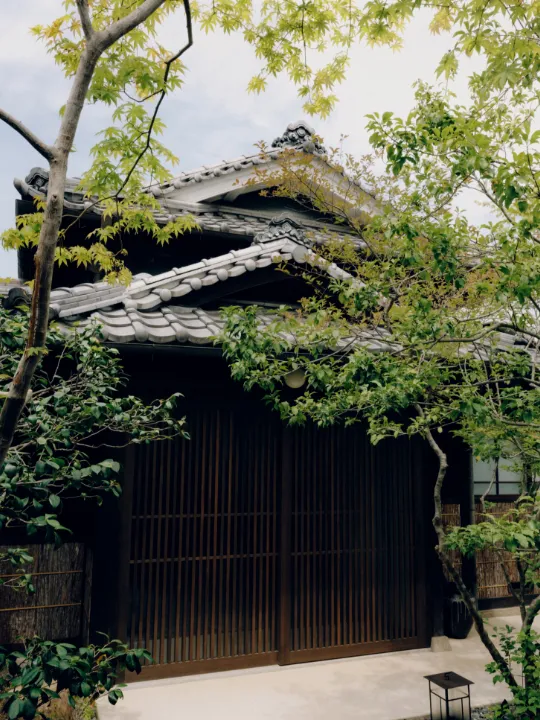
Yuta Oka and Yuya Uenuma stand for original hotels that are deeply rooted in the places they inhabit
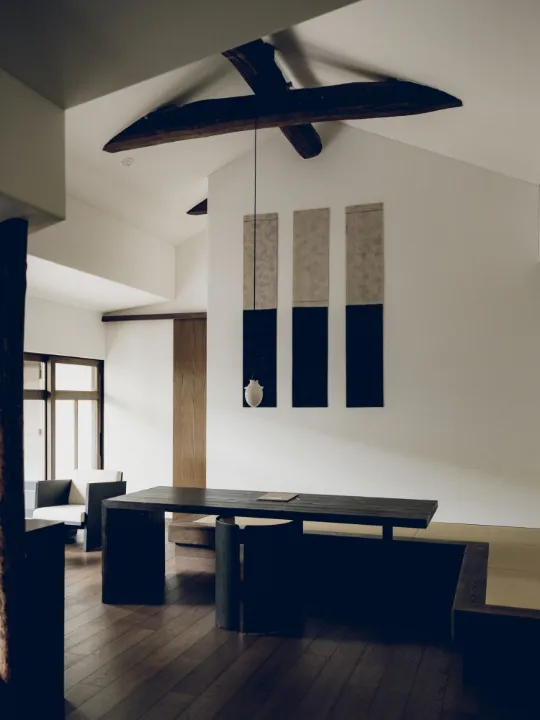
From that shared ethos, Yoruya was born—a thoughtful, intimate hotel in Kurashiki, a charming city on Japan’s Seto Inland Sea. It’s a place shaped by restraint, local materials, and respect for the rhythms of daily life. “The name comes from the Japanese word ‘yoru,’ meaning ‘to gather,’ which has its roots in an older word that means ‘to intertwine,’” Yuya tells us. “We see Kurashiki as a rope woven from generations of human stories. It is our hope that Yoruya—still a thin and delicate thread today—will, in time, be woven into the unique tapestry of Kurashiki’s history.”
We spent time with Yuta and Yuya to discuss the philosophy behind Yoruya, the design decisions that shaped it, and their enduring vision of slow, place-based hospitality.
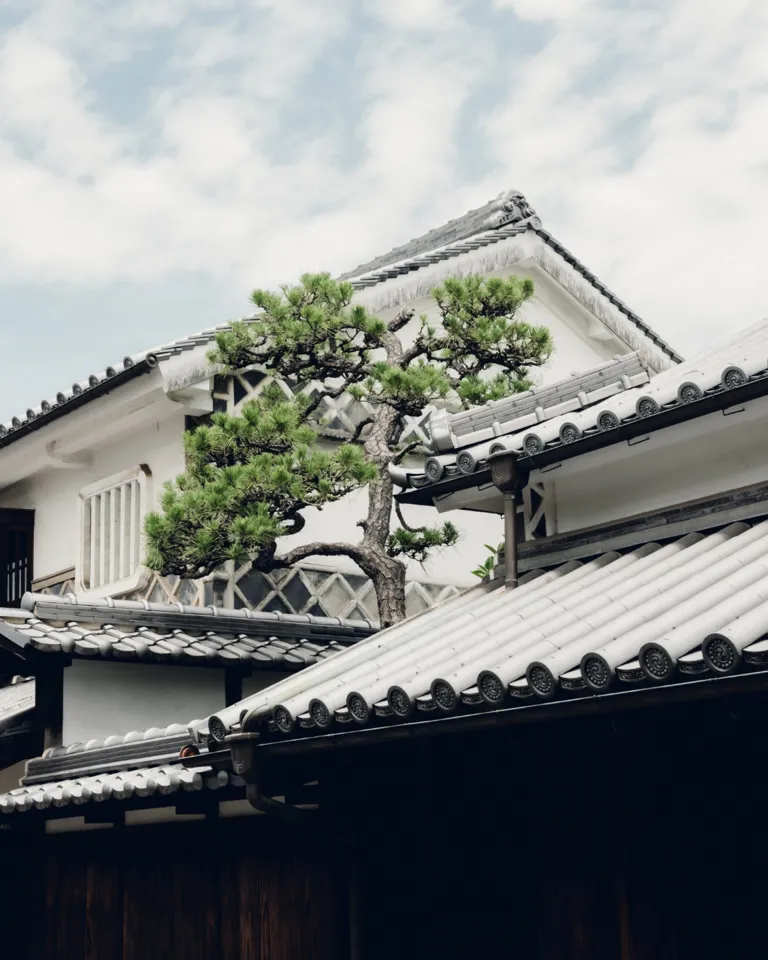
Kurashiki is a small city on Japan’s Seto Inland Sea with a rich tradition of craftsmanship
Yuya Uenuma
Yuta: The most powerful places are often the quietest—the ones where stories, meals, and materials are still part of daily life. That insight shapes how we build: with humility and specificity.
Yuya: For Japanese people, traveling abroad always means crossing the sea—entering a completely different world. That contrast deepens my understanding not just of others, but of my own culture. Travel expands my worldview and makes me appreciate the uniqueness of Japanese life. It also sharpens my creative expression—hotels aren’t just spaces, they recalibrate your senses.
Yuta: Kurashiki holds deep personal meaning. I was born in Okayama and have been coming here since I was nine. It’s a town where daily life and history breathe together. I’ve always believed that the most meaningful places are shaped by long-term, layered relationships between people and nature. With Yoruya, we wanted to plant a seed—a small hotel that could grow into a deeper form of engagement with the town and its future.
Yuya: I enjoy visiting folk craft museums, not only in Kurashiki, but whenever I travel. What I find most rewarding is discovering objects I’m drawn to—not by thinking about their background or meaning, but simply because I like them—and spending a long time quietly observing a single piece, appreciating it for what it is.
Kurashiki is home to the second folk craft museum in Japan, and I often go there to find inspiration or to clear my mind. Another favorite spot is deekon, a natural wine bar, and Itokichi, a wine shop run by the same team. While preparing for the hotel opening, I would often stop by alone. One of the staff members, who’s around my age, introduced me to many aspects of the local food and drink scene.
Yuta: Even if I’m just passing through, I always visit the Ohara Museum of Art. The Western collection curated by Torajiro Kojima is impressive, but the Oriental Art Gallery leaves the deepest impression—perhaps the most profound space of its kind I’ve seen in Japan.
Yuta: I research each location in depth and develop concepts that respond to local culture, craft, and community. My goal is to create experiences that are deeply rooted and allow for meaningful engagement with travelers.
Yuya is the wizard behind the details. He took my conceptual narrative and built it into a lived experience. We share the same values: small-scale development, deep respect for local history, and honesty in materials. I approach projects through narrative, and Yuya translates that into tangible, architectural form. It’s a continuous creative dialogue.
Yuya: Yuta gave me full trust with Yoruya. It was challenging, but this partnership made it incredibly meaningful because it gave me a greater sense of responsibility and an opportunity to express my ideas in an original project.
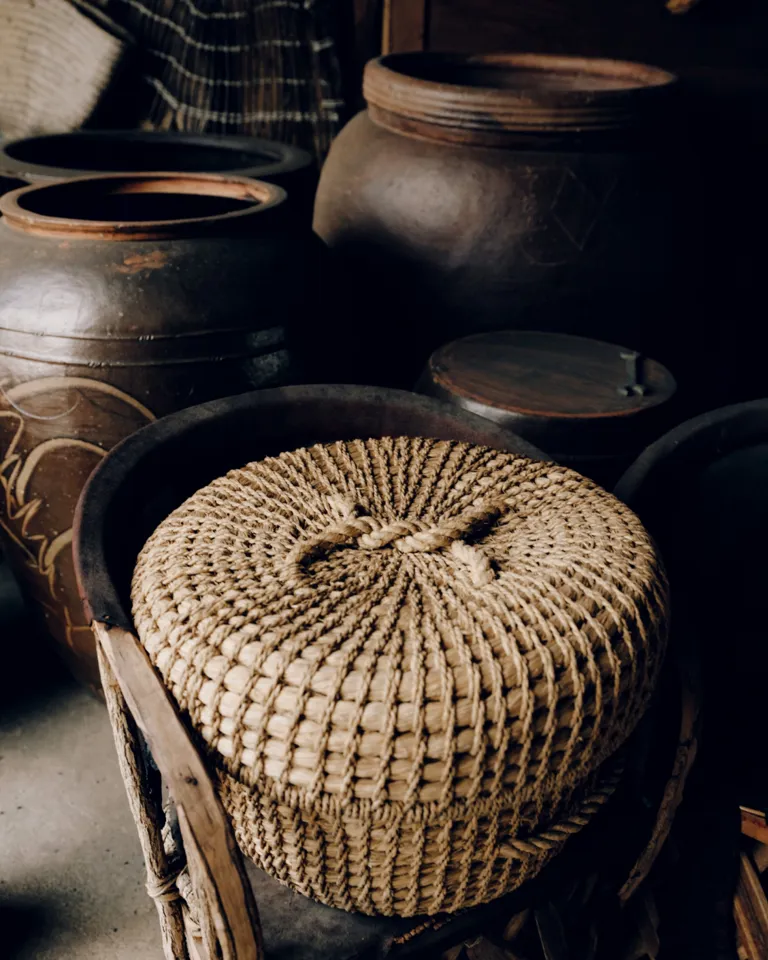
At the workshop of Ryuki Sunami, a local craftsman who works with igusa, a material with a long history in the region
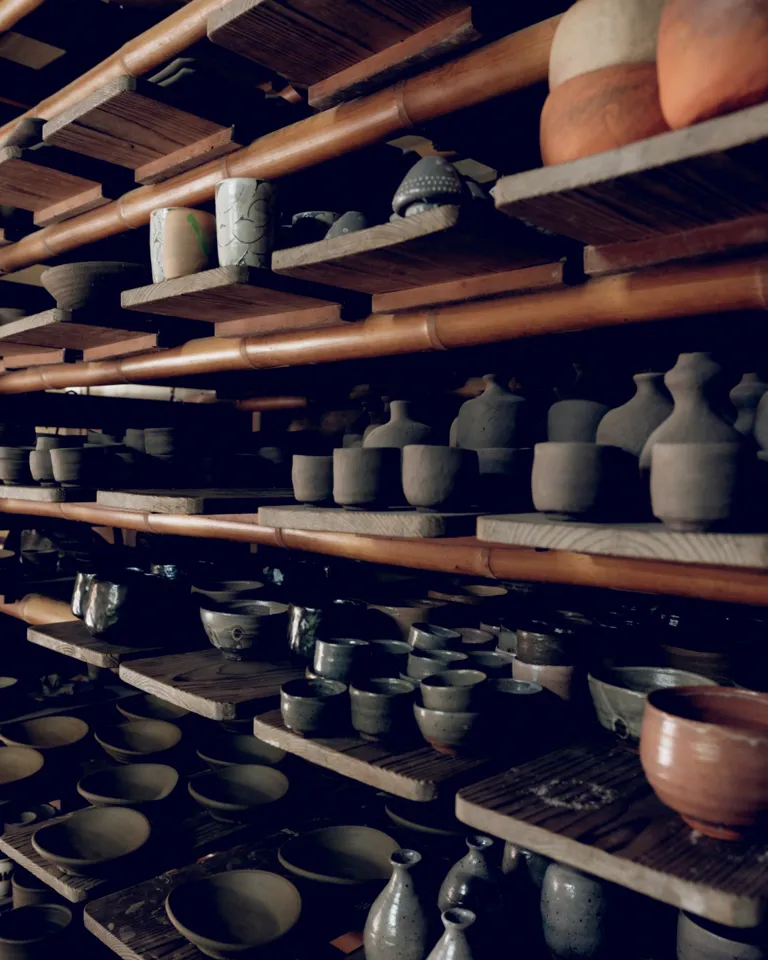
Tokobo Yu continues the ancient tradition of crafting Bizen ware, produced in one of the oldest kilns in Japan, which features at Yoruya
Yuta Oka
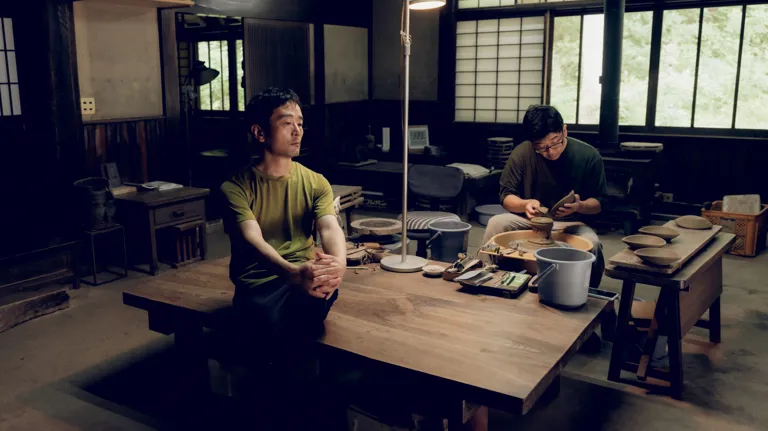
Yuta: We call it “quiet hospitality.” Not grand gestures, but subtle attention—through light, materials, and restraint. We want guests to feel a stillness that allows them to truly encounter the place. That same spirit shapes our development style: thoughtful, layered, and sensitive to the rhythms of the locale.
Yuya: Just as traditional Japanese inns were often family-run and reflected the personalities of their founders, I hope that time spent at Yoruya allows guests to experience something that reflects my personal touch—and the unique character of each team member.
Yuta: Local craft is woven into the structure itself—from Kojima’s indigo-dyed textiles to handmade ceramics, regional timber, washi paper, and igusa. These aren’t decorative flourishes—they form the very inherent atmosphere of the hotel. Our goal was to make local craft feel essential and lived-in, not curated or performative.
Yuya: An inn is a place where guests can truly feel the spirit and culture of the land. In that sense, operating an inn in Kurashiki—a town deeply shaped by craftsmanship and the arts—means those elements are essential. While delicate, everyday objects are often treated as expendables for hotels, we chose not to follow that conventional approach.
Instead, we focused on how best to express the unique character of Kurashiki through custom glassware and pottery, turning them into meaningful keepsakes. Kurashiki and the wider Okayama region remain one of the rare communities where many artists still live and create nearby. I hope guests can sense even a small part of our commitment to this community during their stay at Yoruya.
Yuya: Soft rush grass, a very important material not only for Yoruya, but also for Kurashiki. 400 years ago, Kurashiki was part of the Seto Inland Sea. Through land reclamation, it became habitable, but the salty soil could support only cotton and igusa. The material became central to everyday life—used in tatami mats, noren curtains, and bags. Though less common today, it remains alive in the hands of skilled craftspeople. At Yoruya’s entrance, we use custom igusa noren curtains by craftsman Ryuki Sunami as a symbol of welcome for our guests.
Yuta: For me, igusa is grounding. Its scent and texture evoke quiet domesticity. It brings a calm, earthy sensibility to Yoruya.
Yuya: Simplicity, the design studio behind Ogata in Paris, handled the interiors. We shared a common philosophy: to retain as much of the original structure as possible. In the junior suite, we uncovered a beautiful earthen wall and decided to leave it exposed. Moments like this capture the intuitive design and craftsmanship behind Yoruya.
Yuta: We followed the Japanese “bottom-up” tradition. Craftspeople had clear rules but also autonomy. We removed unnecessary layers and let the structure speak. The clay walls are a favorite—they shift with the light. And the old roof beams are imperfect, weathered, and alive.
Yuta: Adrian Zecha, the founder of Aman. His idea of “listening to the subtle voices of the land” deeply influenced me. It’s a reminder to let the place lead.
Yuya: I admire Yuta and Fumitomo, Naru’s co-founders, my colleagues and mentors. But I don’t aim to be like anyone else—I aim to be an original. Not through one standout talent, but by blending many: finance, digital marketing, creative direction. I believe true originality comes from how you combine diverse skills.
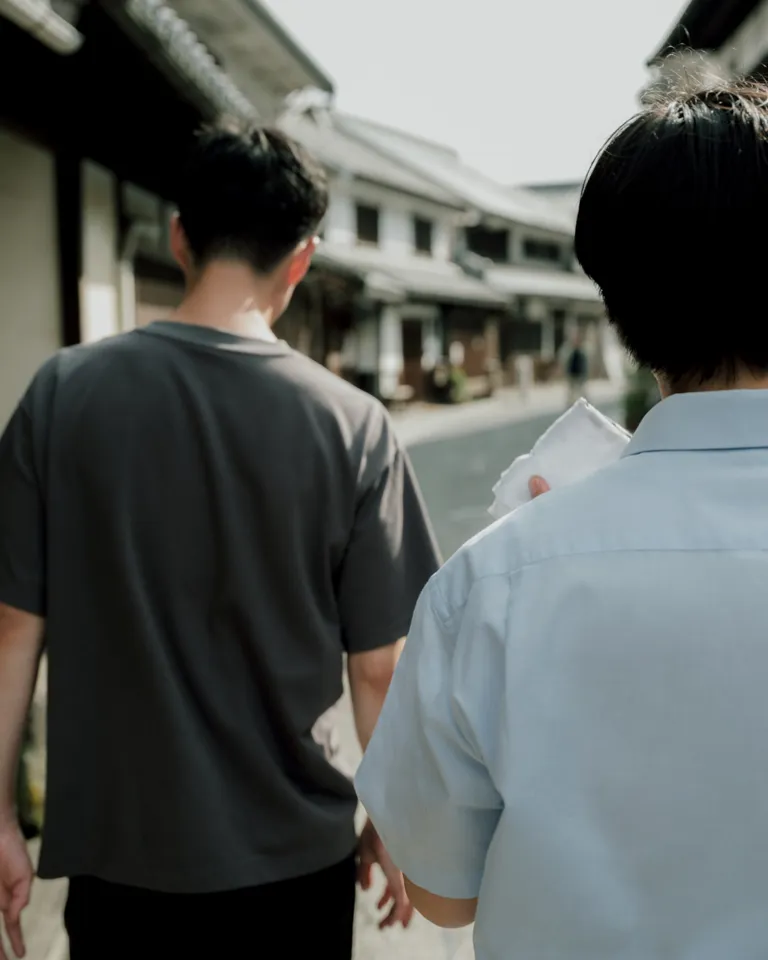
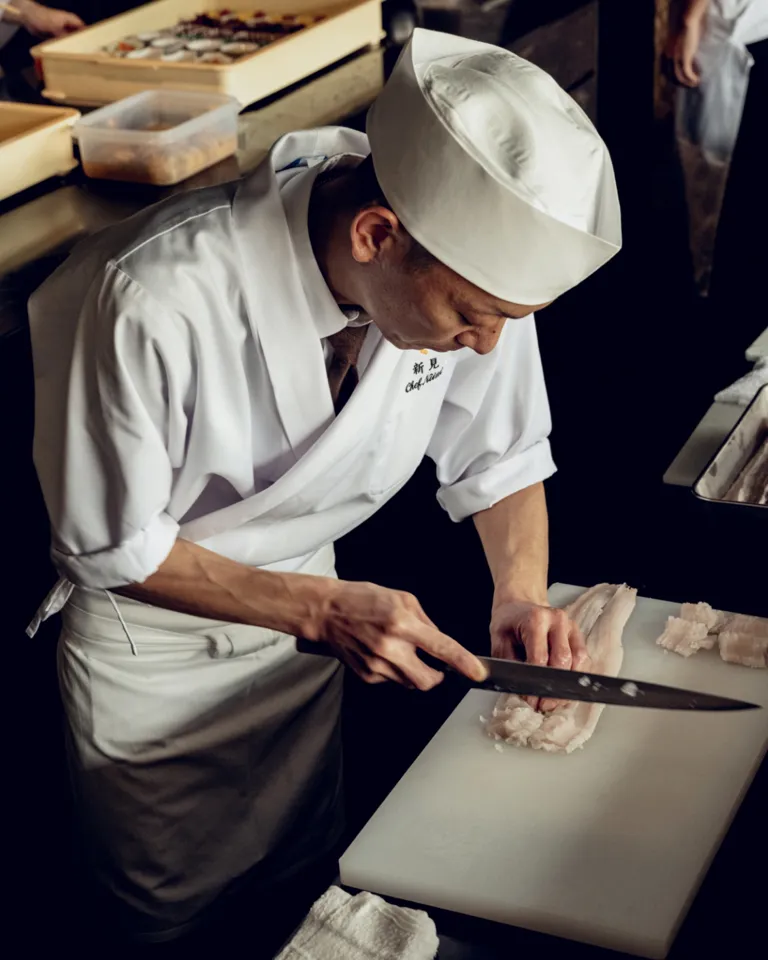
Cuisine, reflecting the local culture and the micro-seasons, is integral to the Yoruya experience and philosophy
Yuta Oka
